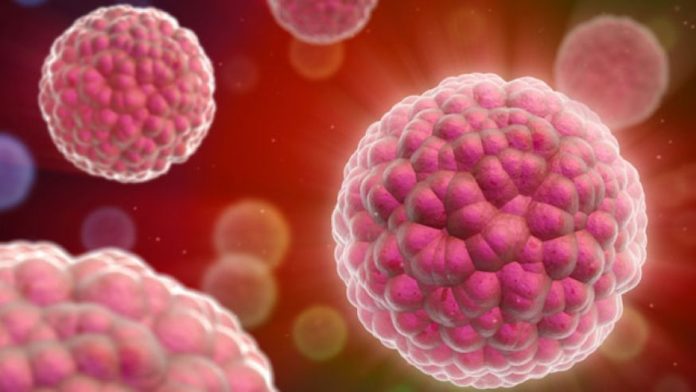
Immune therapy – where patients receive treatment that helps their immune system fight disease – is a growing area in fighting cancer. In a new study, researchers have identified a molecule called NF-kB that helps cancer cells evade the immune system. The discovery could lead to advances in immune therapy, ultimately making such treatment more effective.
Reporting their findings in the journal Cell Reports, senior investigator Dr. Denis Guttridge, an assistant professor at Ohio State University Comprehensive Cancer Center, and colleagues suggest that immune therapy for cancer might be more effective if combined with drugs that inhibit NF-kB.
Their findings also show how interactions between cancer cells and non-cancer cells boost tumor growth, as Dr. Gutteridge – an assistant professor of molecular virology, immunology and medical genetics and of molecular and cellular biochemistry – explains:
“We’ve long known that NF-kB promotes cancer development by subverting apoptosis, an internal safety mechanism that otherwise would cause cancer cells to self-destruct. This study shows that NF-kB might coordinate a network of immune-suppressor genes whose products enable tumor cells to evade adaptive immunity.”
Blocking NF-kB might make tumors vulnerable to attack
The team suggests that blocking NF-kB might make tumor cells more vulnerable to elimination by the immune system.
In earlier work, the researchers found that NF-kB helps normal cells to repair faulty DNA, thereby stopping it from causing harm. But what puzzled them was how and why such a molecule might behave differently in cancer cells.
For the new study, the team observed how NF-kB behaved during tumor formation in live mice and the early stages of mouse embryo development.
They found that immune cells known as macrophages migrate into the tumor during the early stages of tumor development and, as expected, they release tumor necrosis factor to trigger cell death. However, it appears that NF-kB enables cancer cells to survive this.
NF-kB may also be involved in immune suppression
The researchers discovered NF-kB may also regulate a number of genes related to immune suppression. When they switched off one of these genes in cancer cells with active NF-kB, it killed the immune suppression influence and slowed tumor growth.
“Overall, our findings demonstrate that NF-kB might play a pivotal role in enabling cells to evade surveillance by both innate and adaptive immune cells,” concludes Dr. Guttridge.
Another area where immune therapy shows promise is in the treatment of advanced melanoma, where skin cancer has started to spread to other parts of the body. In August, the U.S. Food and Administration approved what researchers say is a “game-changing” drug for the treatment of advanced melanoma.
Keytruda (pembrolizumab) — an immunotherapy drug developed by pharmaceutical company Merck & Co. – attacks PD-1, a protein expressed by immune cells that interferes with the effectiveness of the immune system. By targeting this protein, Keytruda encourages immune cells to attack cancer cells. In clinical trials, Keytruda successfully reversed several cases of otherwise fatal melanoma, and scientists say the drug could also be used to treat other cancers recognized by the immune system, such as lung, bladder and head and neck cancers.
